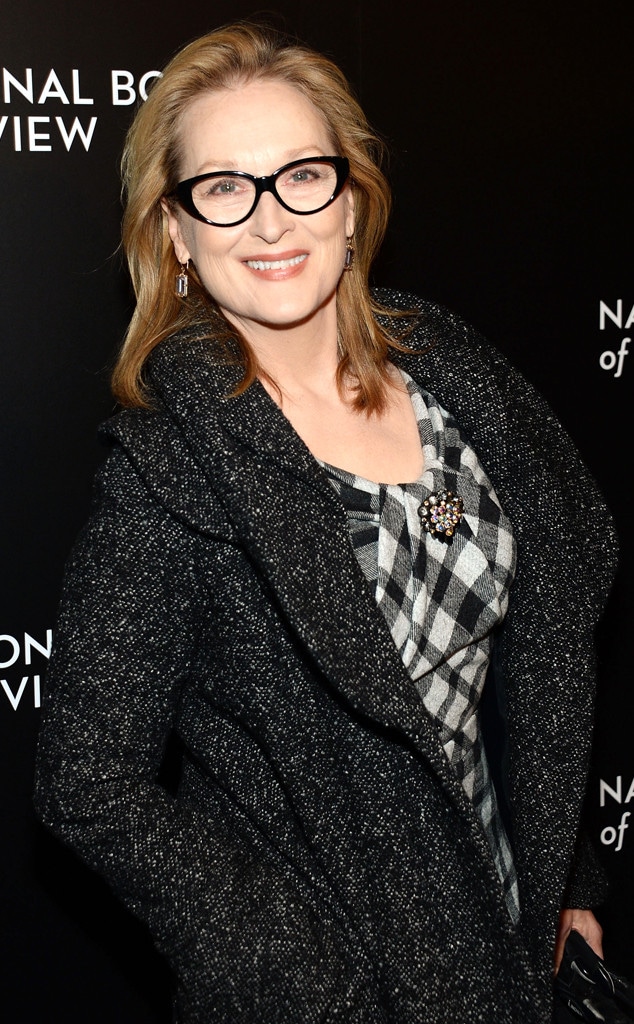 Dimitrios Kambouris/FilmMagic
Dimitrios Kambouris/FilmMagicMeryl Streep stole the show at last night's National Board of Review Awards in New York City with an amazing speech in which she simultaneously honored Emma Thompson for her role as P. L. Travers in Saving Mr. Banks while also slamming Walt Disney as a sexist and anti-Semite.
"Some of [Walt Disney's] associates reported that Walt Disney didn't really like women," Streep said from the stage. "Ward Kimball, who was one of his chief animators, one of the original ‘Nine Old Men,' creator of the Cheshire Cat, the Mad Hatter, Jiminy Cricket, said of Disney, ‘He didn't trust women, or cats.' And there is a piece of received wisdom that says that the most creative people are often odd, or irritating, eccentric, damaged, difficult. That along with enormous creativity comes certain deficits in humanity, or decency. We are familiar with this trope in our business. Mozart, Van Gogh, Tarantino, Eminem...Ezra Pound said, 'I have not met anyone worth a damn who was not irascible.' Well, I have—Emma Thompson."
The Oscar winner went on to praise Thompson as a "saint" before returning to the topic of Disney.
"Disney, who brought joy, arguably, to billions of people, was perhaps...or had some racist proclivities," she said. "He formed and supported an anti-Semitic industry lobbying group. And he was certainly, on the evidence of his company's policies, a gender bigot."
Streep demonstrated this by then reading a 1938 rejection letter which the Disney company sent to a female applicant to a cartoon training program. The letter read, "Women do not do any of the creative work in connection with preparing the cartoons for the screen, as that task is performed entirely by young men. For this reason, girls are not considered for the training school."
Streep then touched on Thompson's film Saving Mr. Banks, which tells the story of how female author P. L. Travers worked with Walt Disney to produce the film Mary Poppins.
"When I saw the film, I could just imagine Walt Disney's chagrin at having to cultivate P.L. Travers' favor for the 20 years that it took to secure the rights to her work," she said. "It must have killed him to encounter a woman, an equally disdainful and superior creature, a person dismissive of his own considerable gifts and prodigious output and imagination. But when we sit in our relative positions of importance and mutual suspicion, and we cast judgment on each other's work, we're bound to make small mistakes and misconstrue each other's motives."
"Which brings me to awards season," Streep said, adding, "Nobody can swashbuckle the quick-witted riposte like Emma Thompson. She's a writer. A real writer. And she has a writer's relish for the well-chosen word. But some of the most sublime moments in Saving Mr. Banks are completely wordless. They live in the transitions, where P.L. traverses from her public face to her private space. I'm talking about her relentlessness when she has her verbal dim sum, and then it moves to the relaxation of her brow, when she retreats into the past. It's her stillness. Her attentiveness to her younger self. Her perfect alive-ness. Her girlish alertness. These are qualities that Emma has, as a person. She has real access to her own tenderness, and it's one of the most disarming things about her."
After Meryl's impressive speech, Thompson said while accepting her award, "It's been an extraordinary year for women's roles. I can't think what gave me the edge. It must have been the perm, which was a great sacrifice. It meant no sex [with my husband, British actor Greg Wise] for months on end."